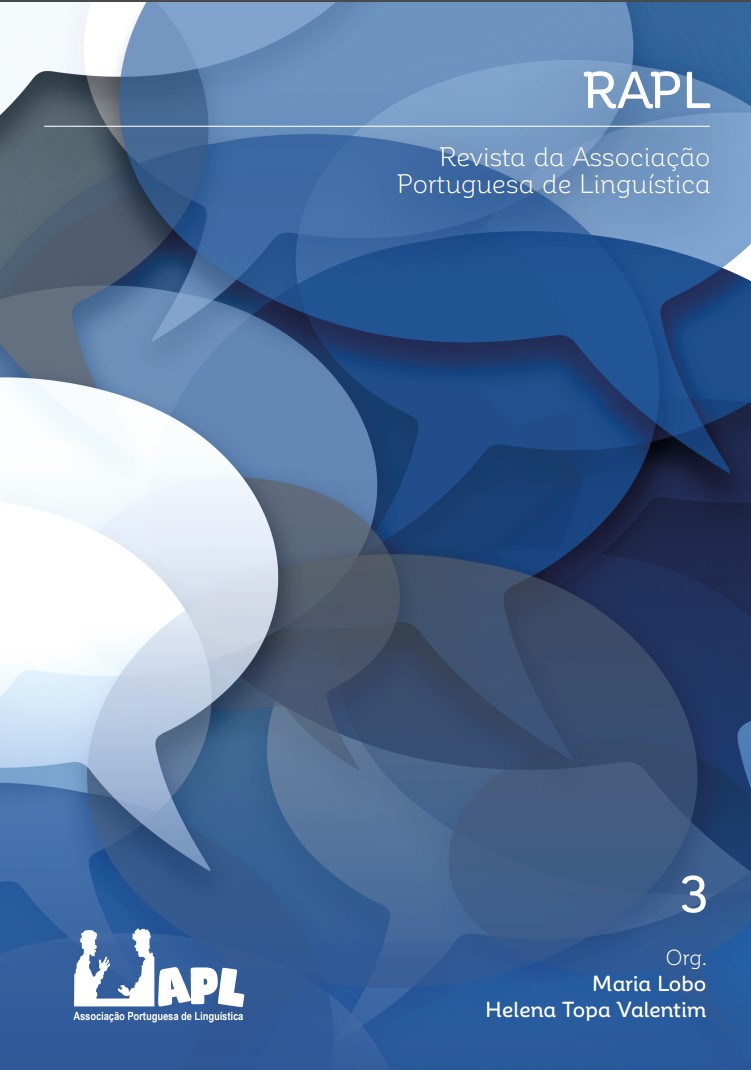Interpretação de pronomes fortes e clíticos em português L2
DOI:
https://doi.org/10.26334/2183-9077/rapln3ano2017a10Palavras-chave:
pronomes, anáfora, ligação, correferência, português europeu L2Resumo
This study investigates whether L2 learners of Portuguese show difficulties in the interpretation of reflexive and non-reflexive strong and clitic pronouns, and whether there are asymmetries in the establishment of referential dependencies with the reflexive ‘si’ in local and long-distance contexts. The study is based on three truth-value judgement tasks and the participants are Chinese-speaking intermediate learners of L2 European Portuguese. The results show that the grammatical status of the pronoun is relevant in the case of reflexives, with learners exhibiting difficulties particularly in the interpretation of reflexive strong pronouns. Moreover, in biclausal contexts, they are more accurate in accepting coreference between ‘si’ and long-distance antecedents than with local antecedents. It is suggested that this behaviour may result not only from L1 transfer but also from the strategies adopted by learners to cope with the processing complexity arising from the ambiguity of these contexts.
Downloads
Downloads
Publicado
Como Citar
Edição
Secção
Licença
Direitos de Autor (c) 2017 Alexandra Fiéis, Ana Madeira

Este trabalho encontra-se publicado com a Licença Internacional Creative Commons Atribuição-NãoComercial-CompartilhaIgual 4.0.
Os autores mantêm os direitos autorais e concedem à revista o direito de primeira publicação. Os artigos estão simultaneamente licenciados sob a Creative Commons Attribution License que permite a partilha do trabalho com reconhecimento da sua autoria e da publicação inicial nesta revista.
Os autores têm autorização para disponibilizar a versão do texto publicada na RAPL em repositórios institucionais ou outras plataformas de distribuição de trabalhos académicos (p.ex. ResearchGate).





